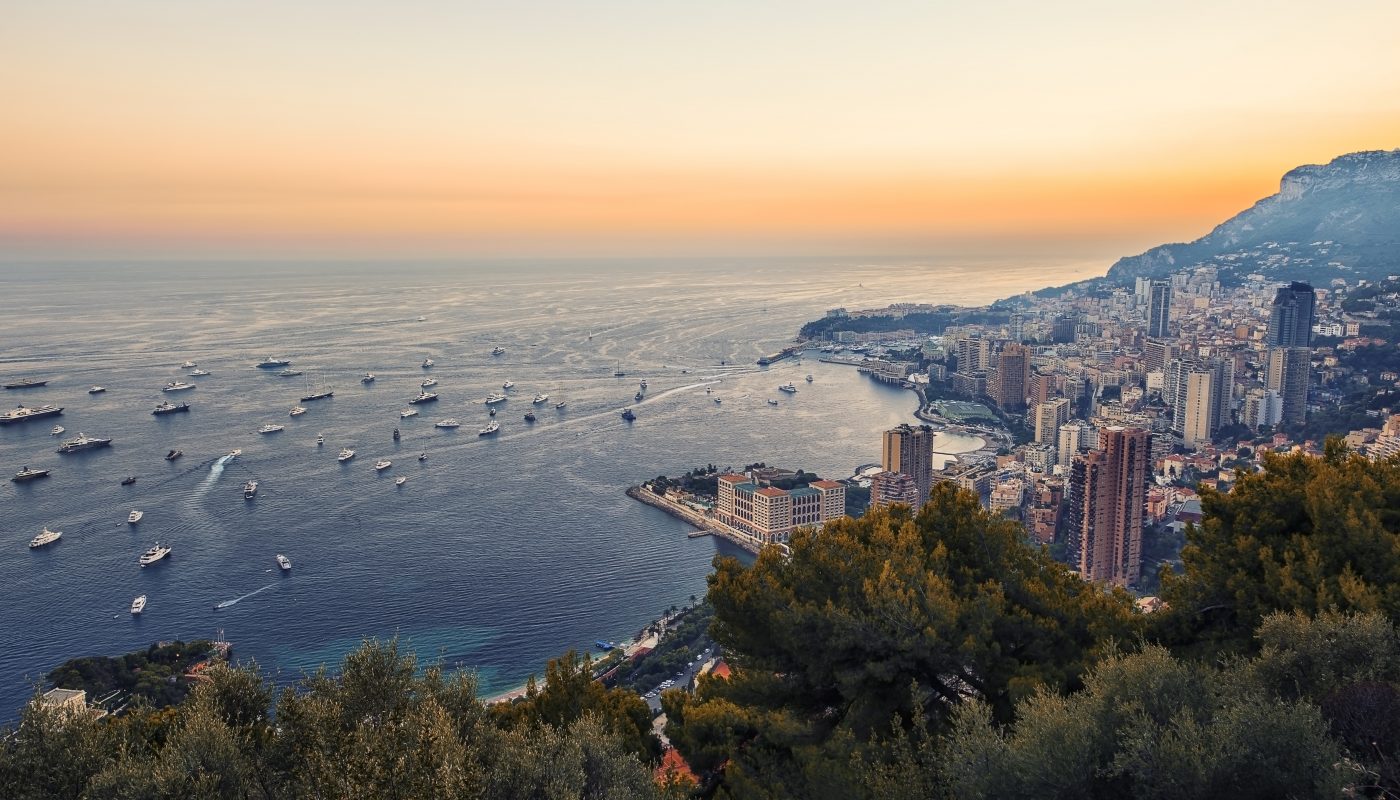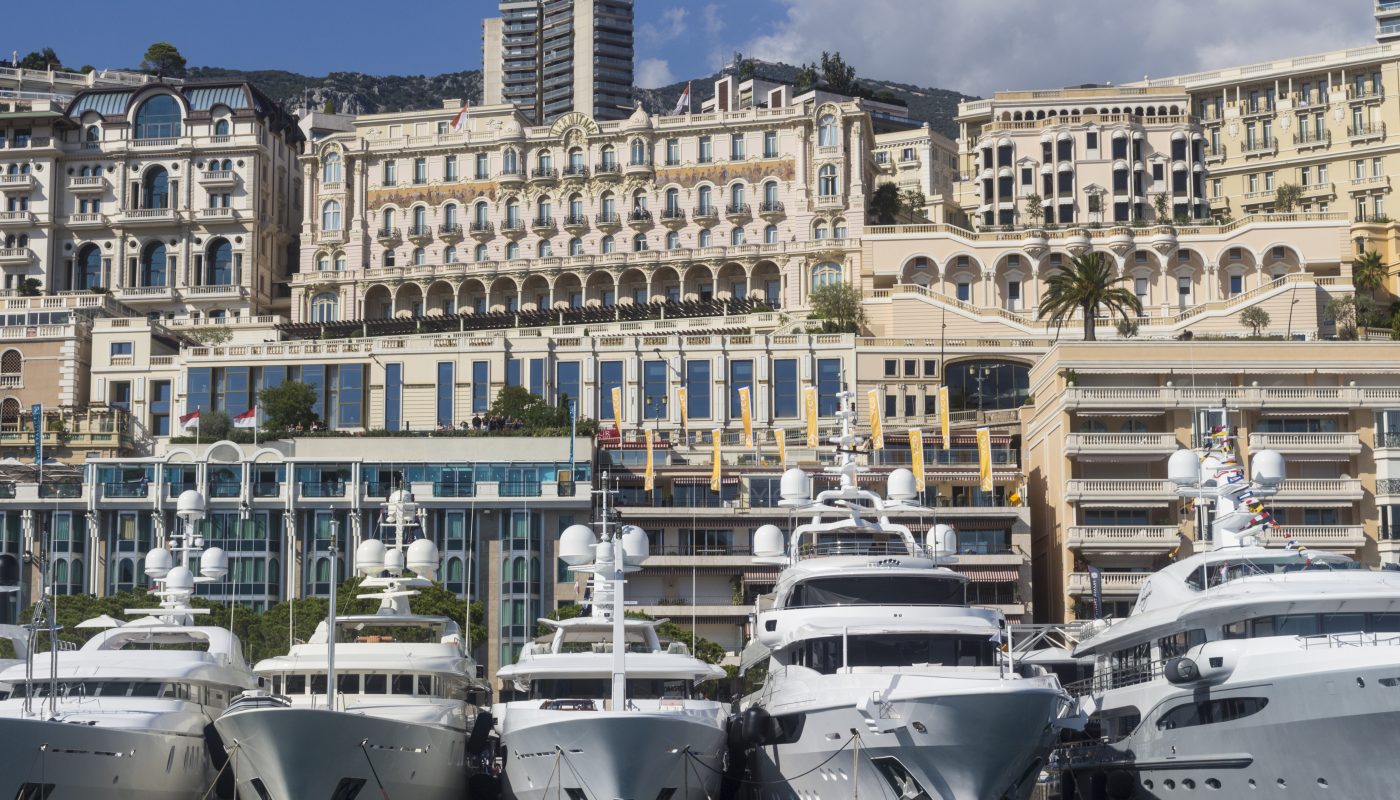Monaco Yacht Show: The Premier Event in the Superyacht Calendar
The Monaco Yacht Show hails itself as the world’s greatest superyacht event. And, sure, Monaco’s famous Port Hercules is—without a doubt—the perfect setting for presenting the world’s most exclusive yachts. But in a digitized world, why should the potential yacht buyer consider visiting the show? We talked to Benjamin Maltby, a London-based lawyer who specializes in yachting and a yachting enthusiast himself.
Perspectives: How important is the Monaco Yacht Show for you as a specialist in the yachting business?
Benjamin Maltby: The Monaco Yacht Show is by far the premier event in the superyacht calendar. While it has all the gloss of a consumer show—and many owners and would-be owners do attend—it is, in reality, a trade show where owners’ representatives shop for yachts, equipment, and services, and industry professionals network endlessly.
Perspectives: What is the character of the show? Is this the place where deals are signed or is it more of a catwalk for the industry’s newest products?
Benjamin Maltby: To an extent, yacht business is show business. Deals are signed, but often because parties have agreed to “sign” at the show and feed this straight to the yachting media to gain publicity. Suppliers need to be seen to be having a good show. There’s a lot of smoke and mirrors—which to an extent is understandable, as the appearance of success can help sales. But because of this, would-be owners need expert help right from the outset to distinguish fact from fiction.

Benjamin Maltby
British lawyer Benjamin Maltby comes from a family of keen sailors. He hasn’t looked back since being asked by an extremely wealthy client to create a company to manage super yachts. Benjamin Maltby now works for Keystone Law in London, and shares his expertise on Twitter (@BenjaminMaltby) in compact, informative “Keynotes”.
Perspectives: Monaco is in the middle of the most popular area for yachting, the Western Mediterranean and Adriatic Sea. On the other hand, the US market has always been huge and clients from the Middle and Far East have become more and more important. Will Monaco still be that relevant 10 years from now?
Benjamin Maltby: Absolutely. Monaco has a cachet and authenticity which is unmatched and unmatchable. While the US and Middle and Far East are indeed important markets, it is the atmosphere and tradition of the Côte d’Azur, to say nothing of the availability of supplies and support, that makes it unique. The only rivals at present are also situated in the Western Mediterranean: Mallorca, the Italian Riviera, Sardinia and Malta.

Perspectives: Many yachting manufacturers and charter agencies have done good business over the last 12 months. Some of them have mentioned a certain “Trump effect.” On the other side, the yachting business is very international, so it could also be affected by trade conflicts. What is the outlook? What will drive the business in the next couple of months?
The outlook has certainly been optimistic recently. A return to US protectionism may curb this, but for many of my UHNW clients, at least, where there is uncertainty, there is opportunity. Memories of the yachting industry’s crash of 2007 are still fresh, and even recently yards have become insolvent, leaving buyers out-of-pocket. It is vital to examine yards’ accounts and obtain the right security to protect buyers’ positions.
"It is vital to examine yards’ accounts and obtain the right security to protect buyers’ positions."
Benjamin Maltby on the Monaco Yacht Show
Perspectives: I have the impression that the design of yachts has become manifold. More concepts have moved away from traditional shapes and draw their inspiration from various sources. Do you expect more of these extravagant concepts in Monaco?
Benjamin Maltby: Yacht designs and refits are the curious result of the blending of two professions with polar-opposite outlooks. On the one hand, yachts exist for the aesthetic experiences they provide—so designers’ sometimes radical input is essential. On the other hand, the expertise of naturally conservative nautical architects is needed to make sure that the finished yachts are safe and efficient. Combining the two disciplines to create a yacht which both performs and delights is tricky but, with the right team supporting the owner, eminently achievable.
Perspectives: But at the same time, selling an eccentric yacht like Motor Yacht A, which went on sale in 2016, seems to be a difficult task.
Benjamin Maltby: I was privileged to have seen the blueprints of MY A long before she was built (for a friend of a client of mine). I never thought she would be built, yet she’s stunning to behold. She’s a bold statement, which isn’t for everyone. Part of that statement is the assertion that while she will be hard to sell—and will therefore have depreciated more than other yachts of her age—it’s only money, and life is short and should be enjoyed.
Perspectives: The trend for uncommon destinations has continued, with more yachting trips going to the extreme north and south. What does a yacht capable of going to these extremes look like?
Benjamin Maltby: As with so many four-wheel-drive cars, which their owners never allow to get muddy, the exploration yacht is a style which has become universally popular. This has made it hard to determine which vessels are actually capable of reaching such extremes. Many genuine (ice-classed) explorer yachts use hull forms which are commercially proven, and the usual smooth hull filling-and-fairing isn’t applied, as it is vulnerable to hulls contracting in the cold and battering through ice.
Perspectives: To mention another trend, the last hurricane season was devastating for the Caribbean region. Lots of crews and yacht owners helped and transported relief. And now, a Norwegian businessman is planning a yacht that fights ocean pollution. One would not necessarily think that yachting and philanthropic ambitions could meet in this way.
Most UHNWs are philanthropic to a greater or lesser extent. The original idea behind YachtAid Global was to deliver relief supplies if yachts were heading to the area anyway, but this has blossomed into yachts changing their itineraries to bring aid. Yachting is also bringing, for example, the problem of plastic and oil pollution quite literally under the noses of the world’s most powerful industrialists.

Perspectives: Most shipyards’ order books are full. And buying a new yacht is a time-consuming venture. Would it be smarter to just see what’s on the market in used yachts? From your point of view—as both a lawyer and an enthusiast for everything yachting—what should you pay particular attention to when considering such a yacht?
Benjamin Maltby: A good yachting lawyer will know of clients who are motivated to sell quickly and may be willing to accept a low, off-market offer. While large yachts can take years to build, refitting a far less expensive used yacht can take just a few out-of-season months. Also, while all—yes, all—new yachts have teething problems during their first few months afloat, when buying a used yacht, such issues should have been addressed. That said, any yacht which hasn’t been maintained properly will experience equipment failures. Buyers need to keep in mind that all yachts, new or old, are communities of people as well as assets—and if those communities aren’t composed of the right people, or if those people aren’t managed properly, the asset will never perform as well as expected. As with so much else in life, who you know is as important as what you know. Two key practical points to keep in mind when considering buying a used yacht are finance and insurance, both of which can be harder to obtain and/or more expensive for older yachts.
Monaco Yacht Show 2018

26–29 September 2018
Port Hercules, Monaco
For more information, please visit the website of the Monaco Yacht Show.